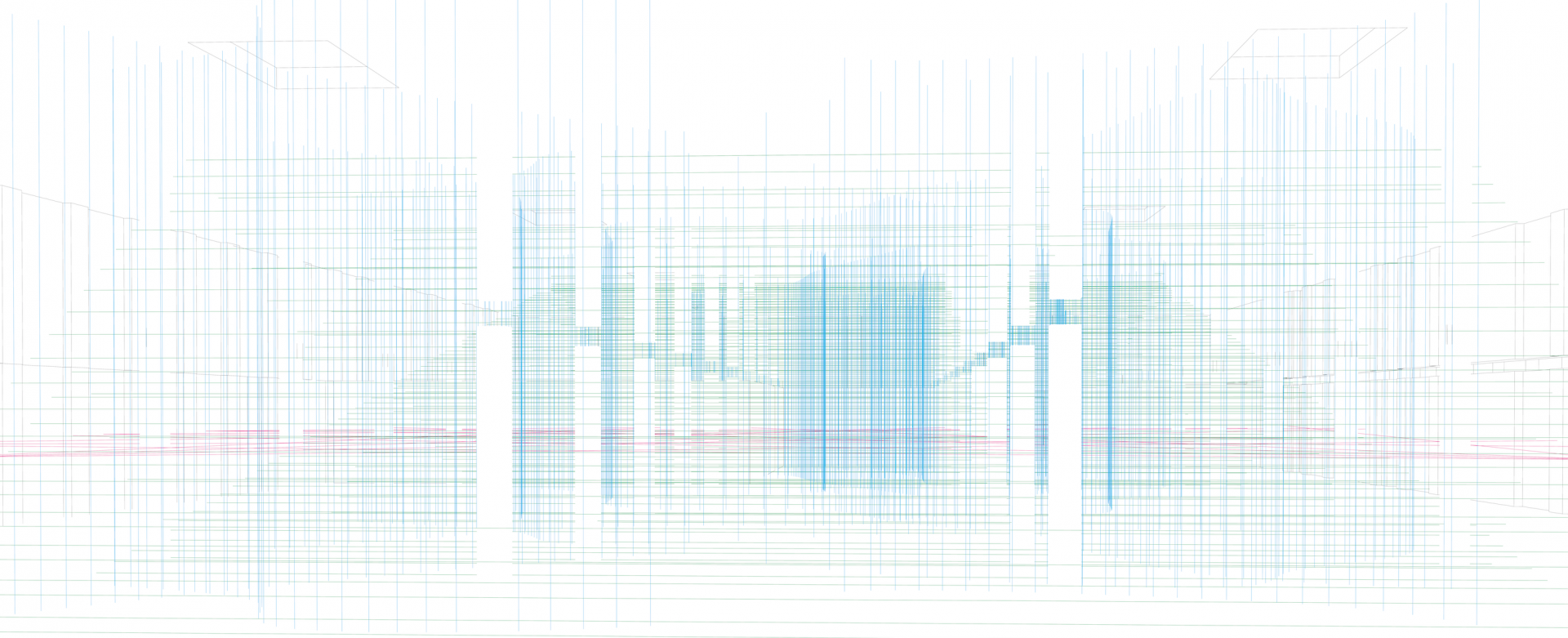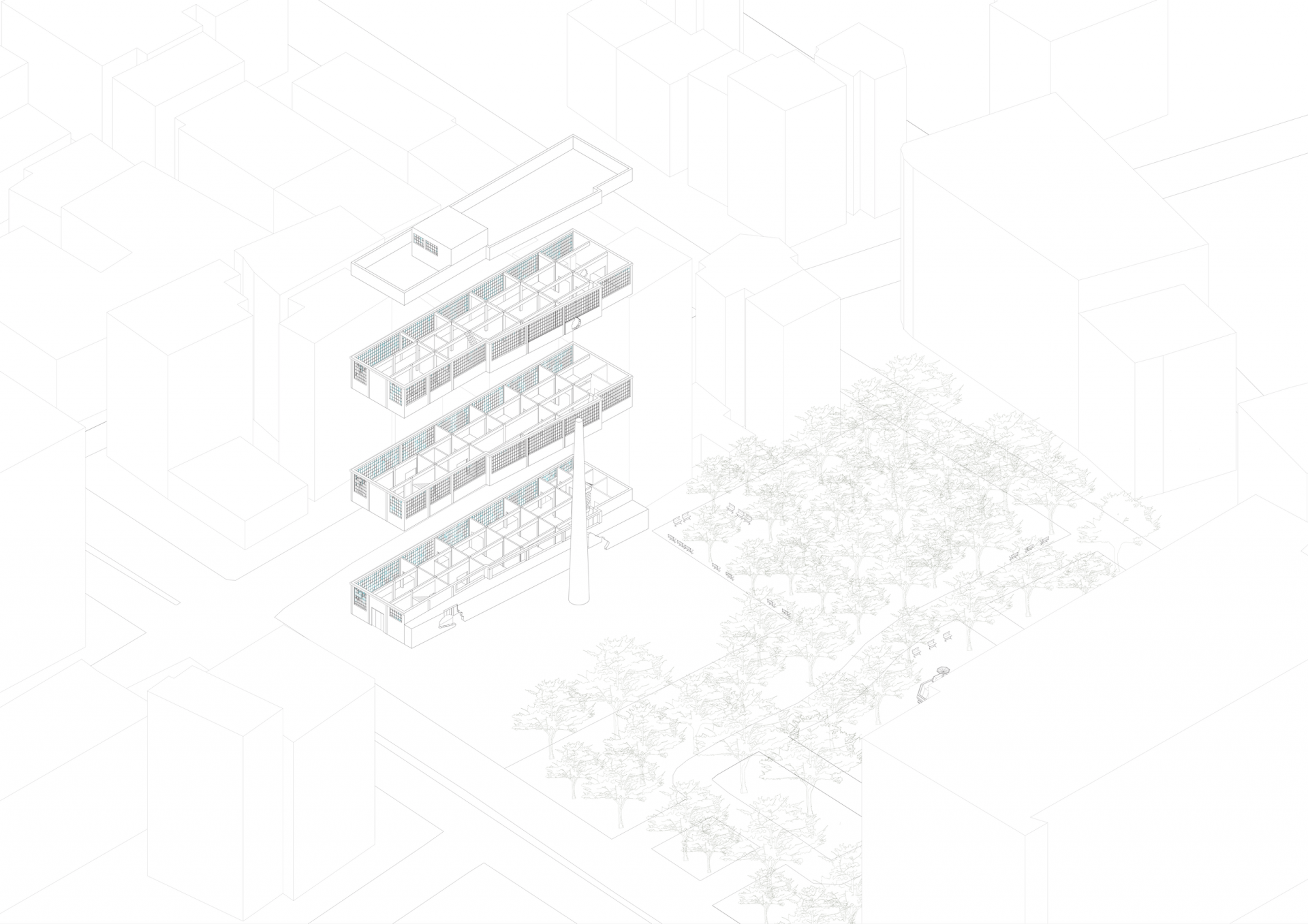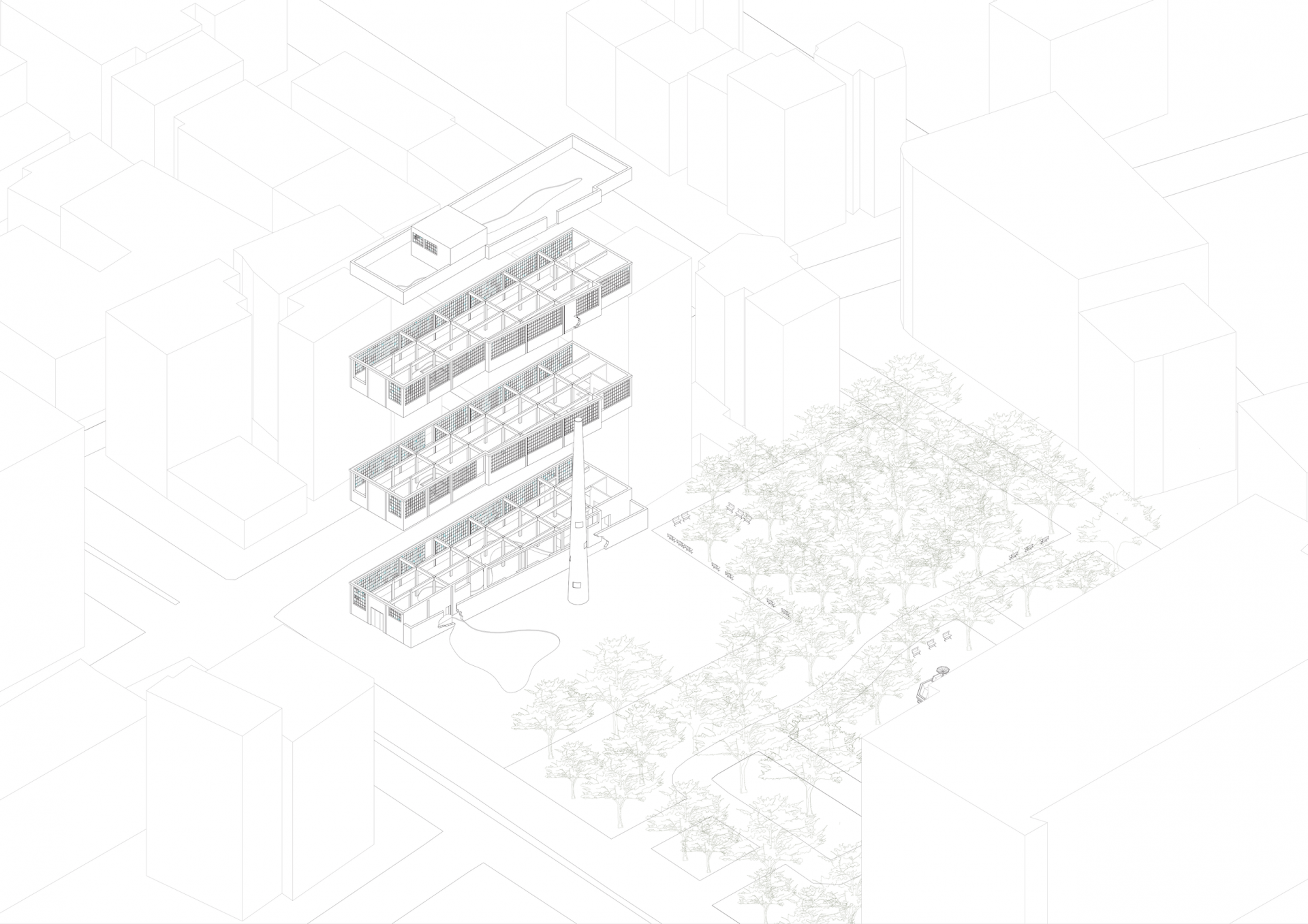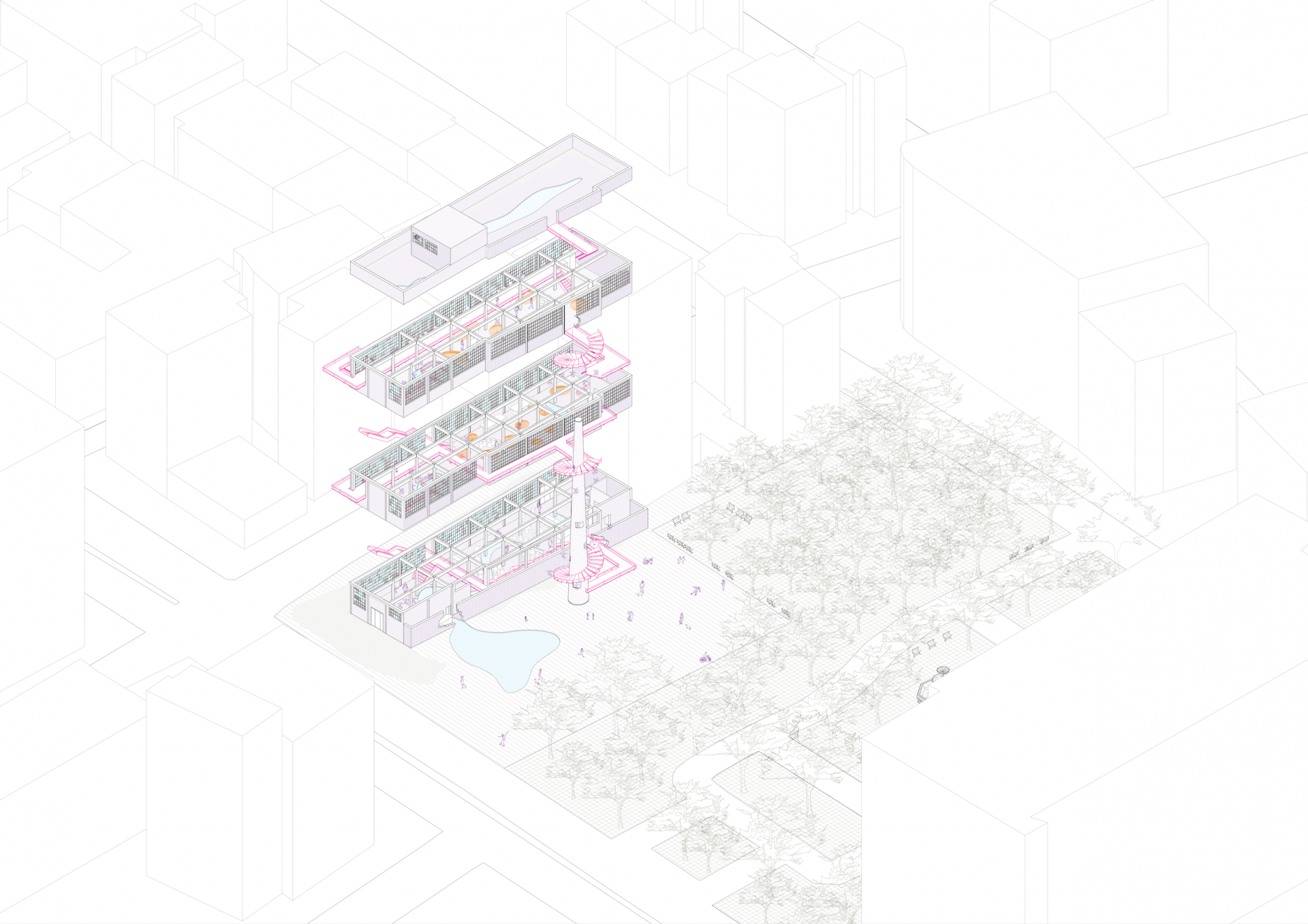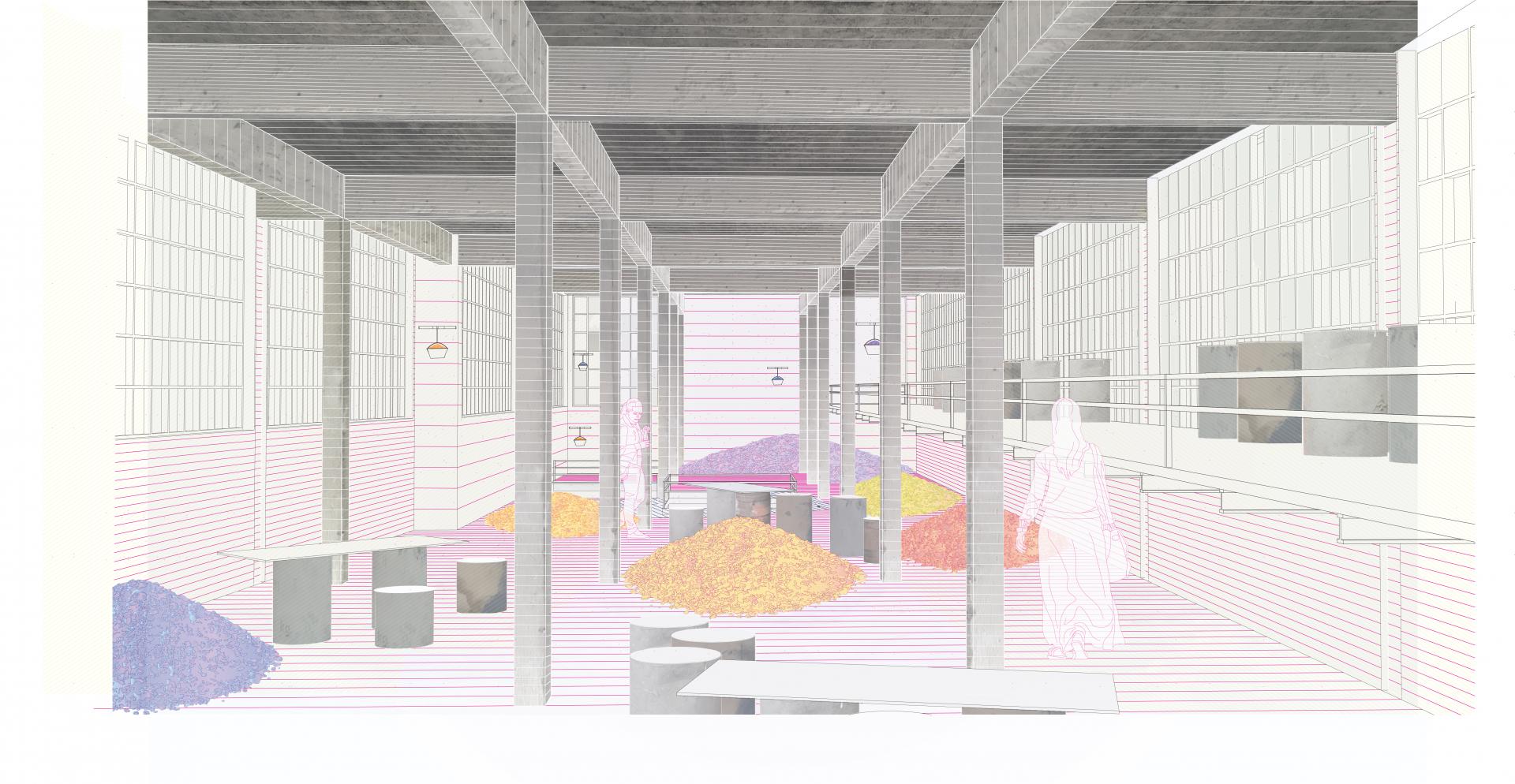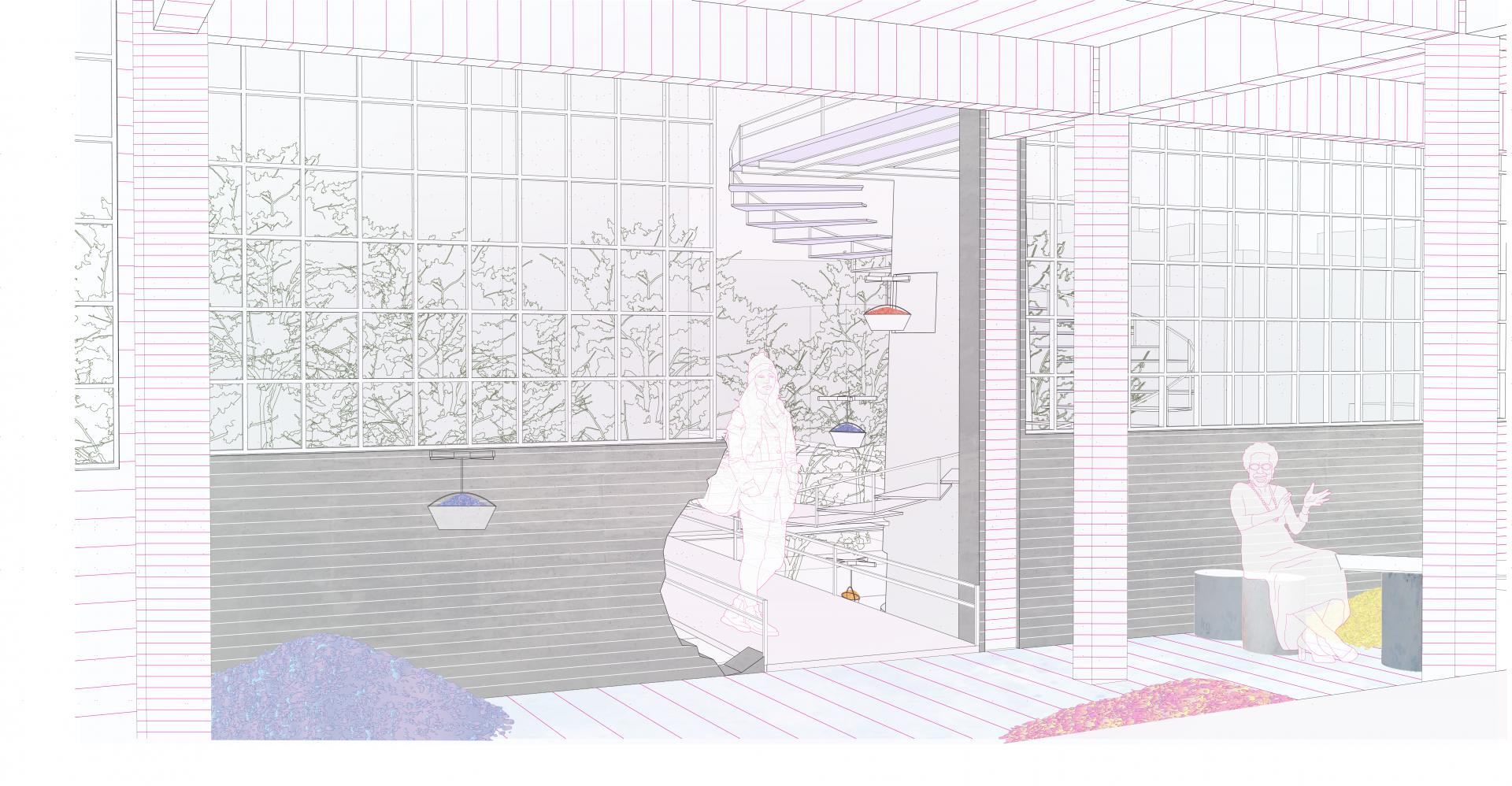Vacant buildings are never truly vacant. They might not be used as originally planned, but there are still signs of life inside them. Even in a state of ruination, nature takes over or undocumented humans use them as temporary shelter. Instead of going the route of completely redesigning, I wanted to embrace the qualities created from the transition periods in between. My interest is directed on revitalizing buildings that were not originally designed for human occupation or appreciation, but rather for machines. Part of the research aims to revisit those buildings that were used as highly optimized models for production.
By acknowledging the weight of its history, my proposal suggests other priorities such as connecting to nature and the environment. My thesis looks into the polemics of an existing abandoned building to design an anthropocentric and post-human architecture.
By learning about all stages that a building has been through, the quality of emptiness can give us clues that might not be apparent initially. The explorations of visual clues, sounds, smells, and surfaces can be key drivers for conceptualizing the future of the building. Those qualities of the space aspire to not only give a new meaning to the building, but also to improve it to fit people’s current needs.

